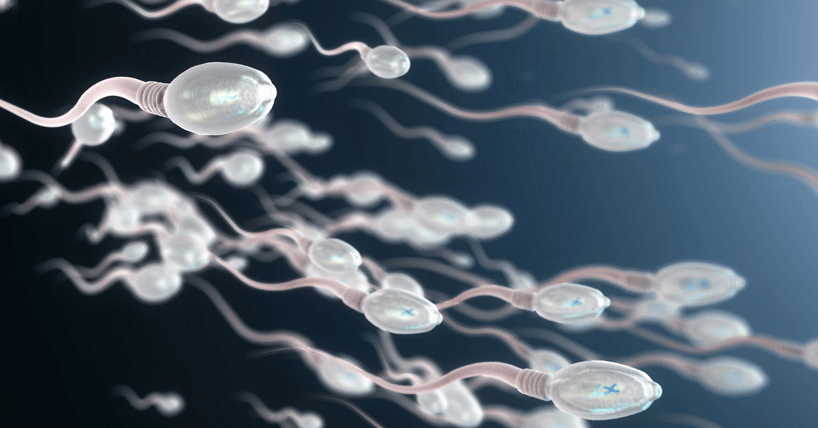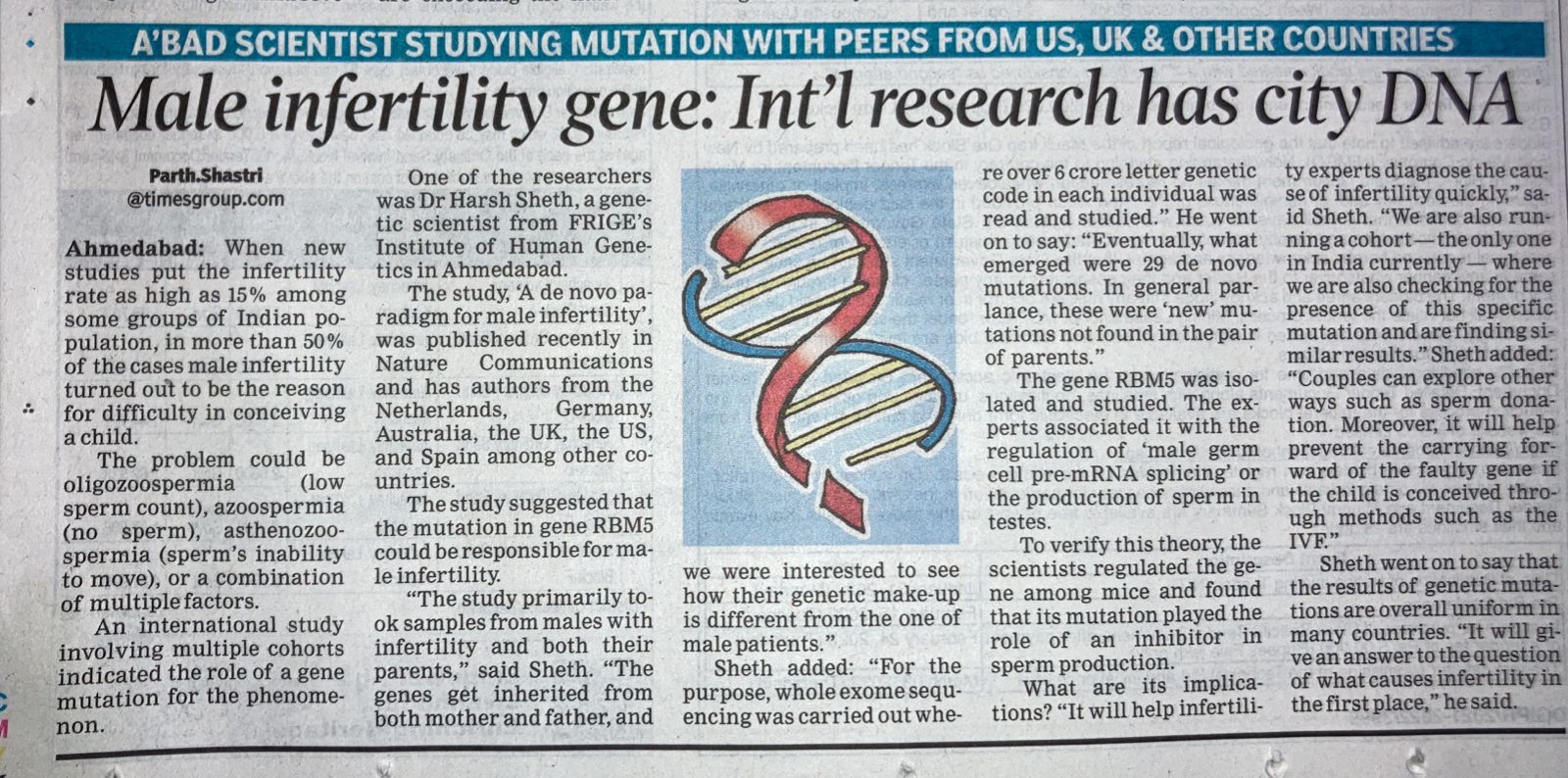Breakthrough in understanding cause of male infertility
A large multinational collaboration consisting of teams from the UK, Europe, USA, Australia and India have identified a new genetic mechanism that can cause severe forms of male infertility.

It is estimated that upto 7% of all men are affected by infertility and 50% of fertility problems within a heterosexual couple are due to the man. In more than half of male infertility cases, the cause remains unexplained.
The multinational team, whose work published in Nature Communications journal this week, shows that new mutations in the DNA, not inherited from father or mother, play a major role in this medical condition.
The team have found that mutations occurring during the reproduction process, when the DNA of both parents is replicated, can result in infertility in men later in life.
This breakthrough in understanding the underlying cause of male infertility offers hope of providing better diagnosis and treatment options for patients in the future.
The team was led by Professor Joris Veltman, Dean of Newcastle University’s Biosciences Institute, UK, whereby Dr. Harsh Sheth (Assistant Professor and Head of Advanced Genomic Technologies Division, FRIGE’s Institute of Human Genetics, Ahmedabad) played role in study initiation and data interpretation.
Scientists collected and studied DNA from a global cohort of 185 infertile men and their parents. They identified 145 rare protein-altering mutations that are likely to negatively impact male fertility.
As many as 29 of the mutations affect genes directly involved in processes related to spermatogenesis – the process of sperm cell development - or other cellular processes related to reproduction.
Experts identified mutations in the gene RBM5 in multiple infertile men. Previous research carried out in mice has shown that this gene plays a role in male infertility.
Importantly, these mutations mostly cause a dominant form of infertility, where only one mutated gene is required. As a consequence, there is a 50% chance that infertility caused by these mutations will be passed on to the man’s child (if assisted reproductive technologies are used) and this may result in infertility, particularly in sons.
Millions of children have already been born through assisted reproductive approaches as a result of infertility. This research indicates a significant proportion of these children may inherit infertility from their father.
With improved genetic diagnosis, clinical teams could better understand why some infertile men still produce sperm that can be used for assisted reproduction, improve counselling for couples, and discuss therapeutic strategies.
Moving forwards, the scientists want to expand their work by studying thousands of patients and their parents in a large international consortium.
They will follow-up their research by conducting further studies into the role these newly identified mutated genes have on the impact of spermatogenesis and on the overall fertility in humans.
Currently, the research team at FRIGE’s Institute of Human Genetics led by Dr. Harsh Sheth is funded by the Indian Council of Medical Research to understand the impact of genetic mutations in male infertility in India. Any patient with male infertility and his parents are welcome to participate in the study and will receive genetic testing free-of-cost.
The work was highlighted in the Times of India newspaper on Monday 31st January, 2022.
